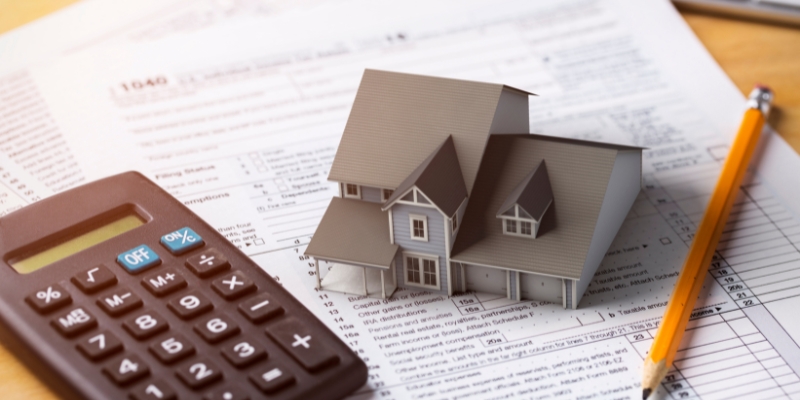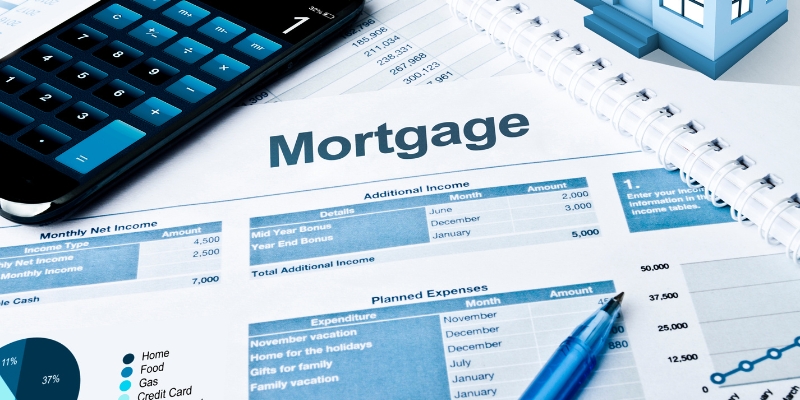Consider more factors when selecting a mortgage than just the monthly installments. It would help if you comprehended the cost of your interest rate installments, when they may increase, and the nature of your subsequent repayments. This article will explain how mortgage interest works in detail. So, take a peek below.
All about mortgage interest rates
Your mortgage interest rate determines your monthly payment to finance your home. In addition to repaying the sum you acquired, you also have to pay this sum to your creditor. Your mortgage payment each month includes interest. Your interest rate is the issuer's reward for allowing you to utilize its funds to buy your property.
Both fixed and adjustable mortgage interest rates are available. The conditions of the lender will determine this.
Which mortgage rate is ideal?

A decent mortgage rate will seem different depending on the kind of mortgage. Since there are numerous other considerations, the item with the cheapest cost may only sometimes be the item that is best for you or the least expensive. Comparing a lender's rate to those of similar goods is the most effective technique to assess whether it is decent.
It's also crucial to remember that mortgage rates fluctuate based on the base rate and overall economy when you sign out your loan. What constitutes a "good" mortgage rate may also depend on your financial situation. For instance, if you have strong credit or can afford a sizable down payment, you may find it simpler to obtain lower rates.
How does interest on a mortgage work?
Depending on the housing loan you choose, interest will operate differently. We will now go through a few different types of mortgages and how their interest rates function.
A mortgage with a fixed rate
A fixed mortgage has a predetermined interest rate that won't change for a predetermined period of years. A fixed-rate mortgage debt can be secured by domestic or commercial real estate. A fixed-rate mortgage is one where the borrower (the debtor), as well as the lender (the creditor), agrees on the interest rate before the loan is disbursed, and that rate stays the same (thus the term "fixed-rate") throughout the loan term.
Your mortgage installments will remain the same throughout the fixed rate period regardless of changes to the introductory interest rate established by the bank, making it simple to build a budget around.
A mortgage with a variable rate
With a variable-rate mortgage, your interest cost and, consequently, your monthly payments are subject to change. Standard variable rate (SVR) mortgages, tracker rate mortgages, and reduced rate loans are the three primary varieties of variable-rate mortgages.
Your lender determines the interest rate you repay, which may vary monthly. This implies that the number of your monthly payments may increase or decrease. The bank's base rate may also have an impact, although this is entirely up to the lender. Most initial agreements will be at a reduced rate from the creditor's usual variable rate (SVR).
Tracker mortgage interest
A tracker mortgage is an adjustable loan that you can use to purchase a new house or move up the housing ladder, similar to any other mortgage.
The Bank of England base rate, which represents the interest rate where the higher banks take funds, is typically followed by tracker mortgages. The first Thursday of every month is when the Bank of England determines whether to adjust its base rate. A tracker loan's interest rate can fluctuate throughout time, just like an adjustable-rate mortgage, which means your payments could go up or down. With a tracker loan, however, the interest cost is locked at a certain level, either above or below whatever rate it monitors, which is usually the Bank of England base rate.
For instance, if the base price is fixed at 0.5%, your tracker rate may be set at 1% over the base rate, resulting in an interest cost on your loan of 1.5%.
How to cut the interest rate on a mortgage?
There are numerous strategies to reduce your cost, even though loan interest rates are displayed at every financial company.
Request a price break
Any lender may offer a reduction. All you have to do is inquire and bargain.
Look around
You should speak with a few different lenders to find out what rates they are providing.
Decide on a variable rate.
While variable-rate mortgages often have lower rates than fixed loans, they may increase over your term.
Work with a mortgage broker.
Additionally, mortgage agents will possess a network of professionals who can assist in getting you the most excellent offer and might even have accessibility to unique products that are far more reasonable than those you can obtain on your own. Collaborating with a dealer can be advantageous because they can comparison-shop for you and get the best rate.
Refinance
If you possess an existing mortgage, you might inquire with your lender about the possibility of blending and extending your loan.
Many individuals concentrate on obtaining the cheapest interest rate when applying for a mortgage, but this should be something other than your top concern. Before you agree, be careful to review all the terms, particularly any prepayment alternatives.
Conclusion
You must consider every possible interest rate before selecting your mortgage item and service provider. This is because even a modest difference throughout your loan could save you hundreds of pounds. A lower interest rate will facilitate your ability to pay off your loan. Therefore, consider mortgages with lower interest rates and consult your loan broker for better guidance.



